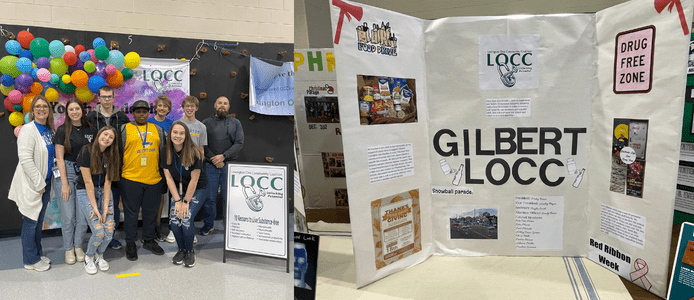
Sustainability is one of the most important components coalitions must consider in their efforts to create lasting and impactful change. Achieving long-term results is only possible when steps are thoughtfully taken to ensure that coalition work can continue beyond the life cycle of a grant. Lexington One Community Coalition (LOCC), based in Columbia, South Carolina, made sustainability a top priority when they reached year 6 of their Drug Free Communities (DFC) grant in 2012. Roughly ten years later, LOCC is as strong as ever – thanks to the mindful actions taken early in their work.
One crucial step LOCC attributed to their lasting success was the formation of a Sustainability Committee. This committee, in addition to looking for various funding opportunities, critically reviewed their community data to determine which strategies appeared to be most effective. Using this information, they were able to prioritize what they would want to sustain beyond their DFC grant.
“It became pretty clear early on that we wanted to keep the full funding amount of $125,000, even after cycling out of the DFC grant,” explained Dr. Pam Imm, Co-Chairperson of the LOCC. “As somebody who has worked with sustainability for a long time – I’ve been doing this since the DFC Act was passed in 1997- something I usually tell communities is that it’s not likely you will be able to sustain everything at the full amount after your ten years. So, together, we identified what we wanted to prioritize most.”
“First, we decided we wanted to keep the Coalition Coordinator position. I frequently say sustainability is not about keeping jobs, but we knew that we needed to have somebody on staff. Second, we wanted to keep conducting our student survey, because it has proven to be really useful in a variety of ways, including giving us insight on how effective our strategies are, as well as identifying new emerging trends among youth. Third, we host a very successful youth leadership summit each year for both a middle and a high school group that we knew we wanted to continue. Lastly, we wanted to keep being able to host trainings and advocate for policy change.”
Recognizing that a majority of the funding would need to go towards staffing, they approached a long-time key stakeholder and sector representative for aid. “We met with the superintendent of our school district and asked if they would be willing to chip in half of the funding so we could continue our work. They ultimately accepted on one condition – that the staff person who ran the coalition would also work part-time at the school district as a social worker.”
This, Dr. Imm reflected, became mutually beneficial in various ways. “Working part-time at the school led to involvement in activities that our coalition coordinator would have wanted to be involved in regardless. For example, we now conduct trainings for new school staff on signs and symptoms of youth substance use and are able to get information back about the latest trends they are seeing among students. We also were able to pull in some of that staff to help with our Youth Leadership Summit. Ultimately, this allowed us to build capacity and strengthen our relationship with an important sector.”
Additionally, one of the other key priorities – the Youth Survey – incorporated naturally under this arrangement. In fact, the survey has expanded from being conducted across three grade levels to now being given to all students from 6th-12th grade. LOCC was also able to maintain their goal of continuing to host their Youth Leadership Summit, where 100 middle school and 100 high school students come together to create prevention plans for their schools. This past week, they celebrated hosting their 15th summit.
Overall, the LOCC’s biggest takeaways and advice for those looking to prioritize sustainability in their coalitions is, “Start early. Develop a sustainability committee. Talk about it often and have it on the agenda at each of your coalition meetings. Don’t be shy to ask for a commitment of funding, but also don’t expect you will be able to sustain everything. Lastly, take time to evaluate which activities you might be able to pass off to other funders or partners.”
“Also, remember that evaluation data is critical. Years one through five as a DFC coalition, I made sure I got evaluation data for all of our efforts, because people are much more motivated to keep the coalition going if they know what you’re doing is effective.”


